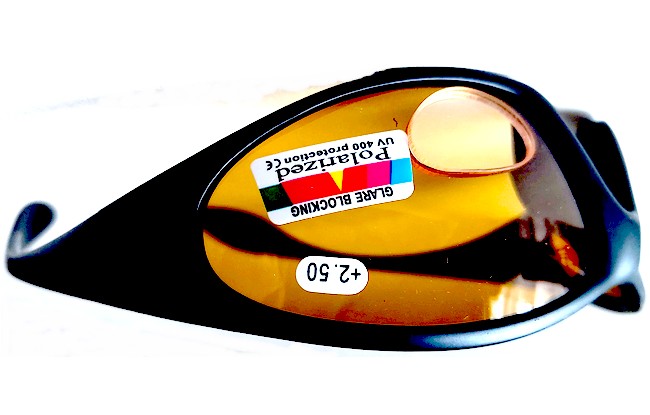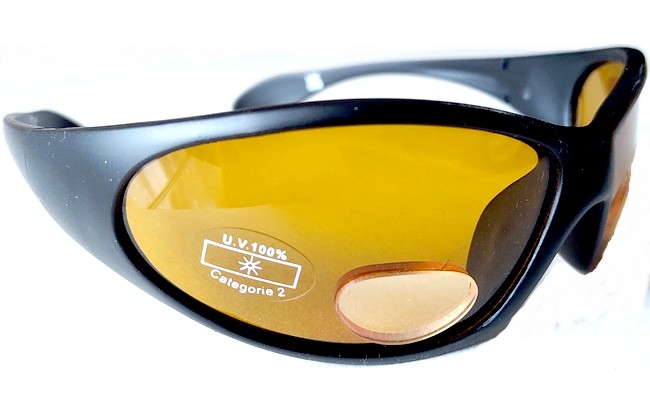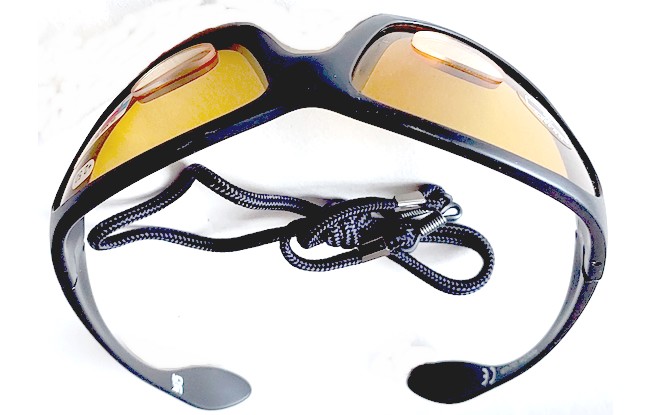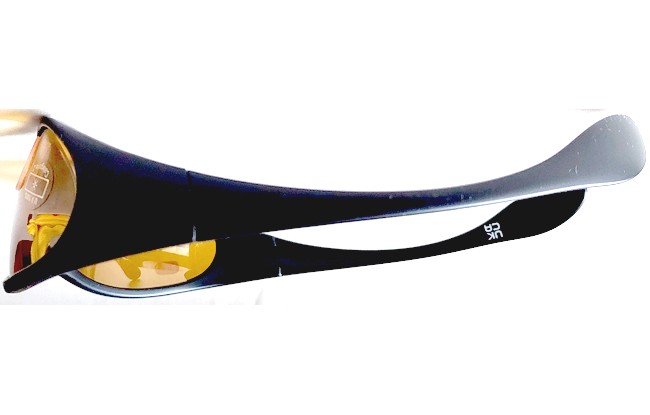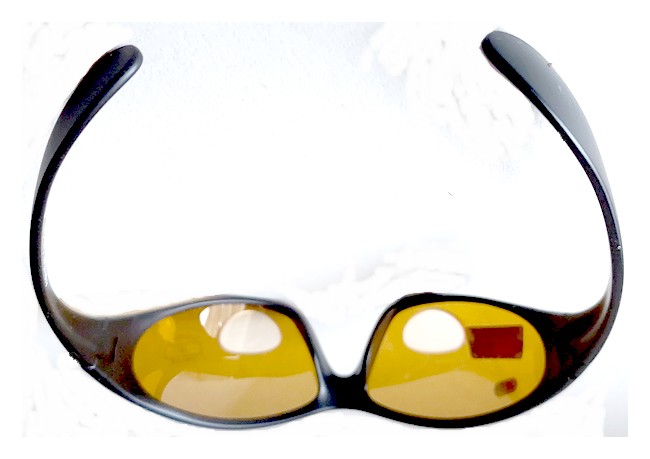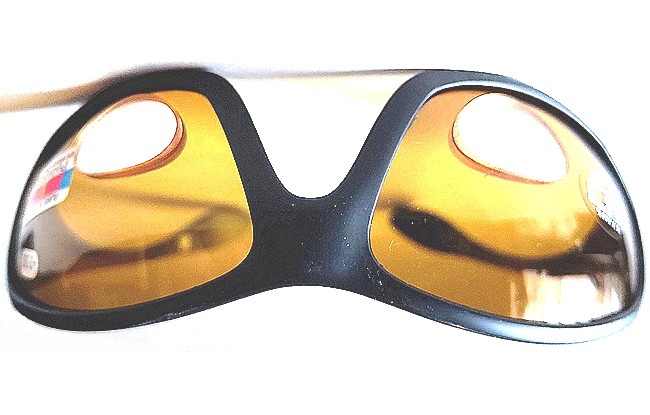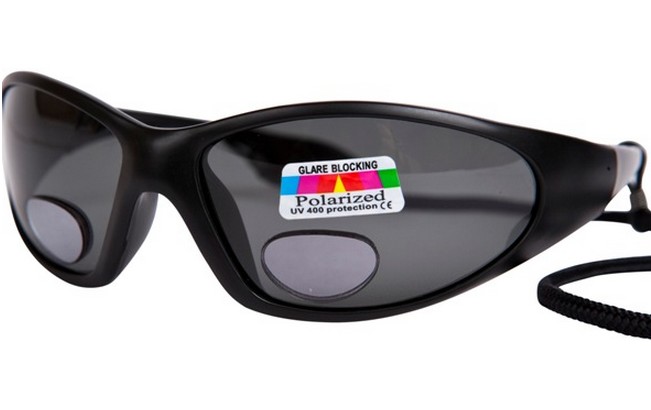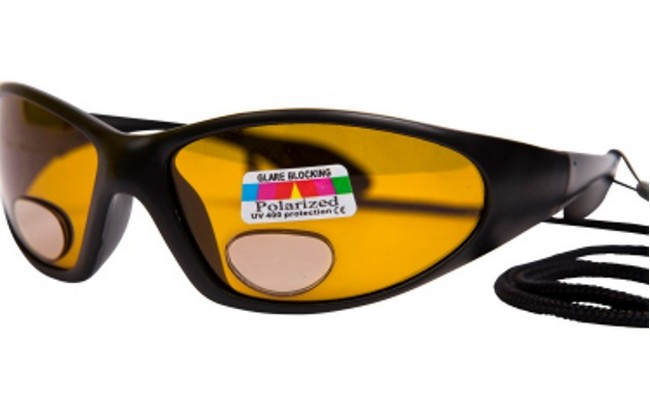
Polarised Bifocals
Polarisation
Vibrations of light occur in all planes at right angles to the direction along which light travels. Light waves are transverse waves. Plane polarisation occurs when the omnidirectional transverse light vibrations are constrained to vibrate in a single plane. If plane polarised light is constrained again at a right angle to the first plane of polarisation, then all light is blocked. This effect is used in polarising lenses.The Inconvenience
It can be a tedious process when you have to keep switching between polarised glasses and reading glasses. This is particularly so when performing intricate close up tasks.Design
The PBA and PBG resolve this inconvenience by incorporating a +2.50 magnifying reading lens into the lower section of the complete lens to form bifocal glasses. The upper lens section consists of a non-corrective polarising section for distance viewing. The UV400 polarising bifocal lenses attenuate reflection from horizontal surfaces and block glare from many angles. The PBA and PBG, below, have dual use as both sun glasses and tinted reading glasses.Applications
Angling
The PBA and PBG For anglers provide a clearer view of what is happening below and above the water surface. Connecting line to hooks and floats is made easier wearing these tinted bifocals. The glasses also assist with depth perception and distortion by water.Cycling
Because the glasses have wrap around arms, there is less chance of loss when traversing uneven roads. There is also the backup of the neck cord.Gardening
Very useful for spotting green fly infestation, tying string around canes and pulling weeds out of the ground instead of valued plants.Tint Strengths
Available with either grey PBG category 3 lenses for strong sunlight or amber PBA category 2 lenses for average sunlight.Accessories
Supplied with a black cord neck lanyard and microfibre cleaning bag for safekeeping.